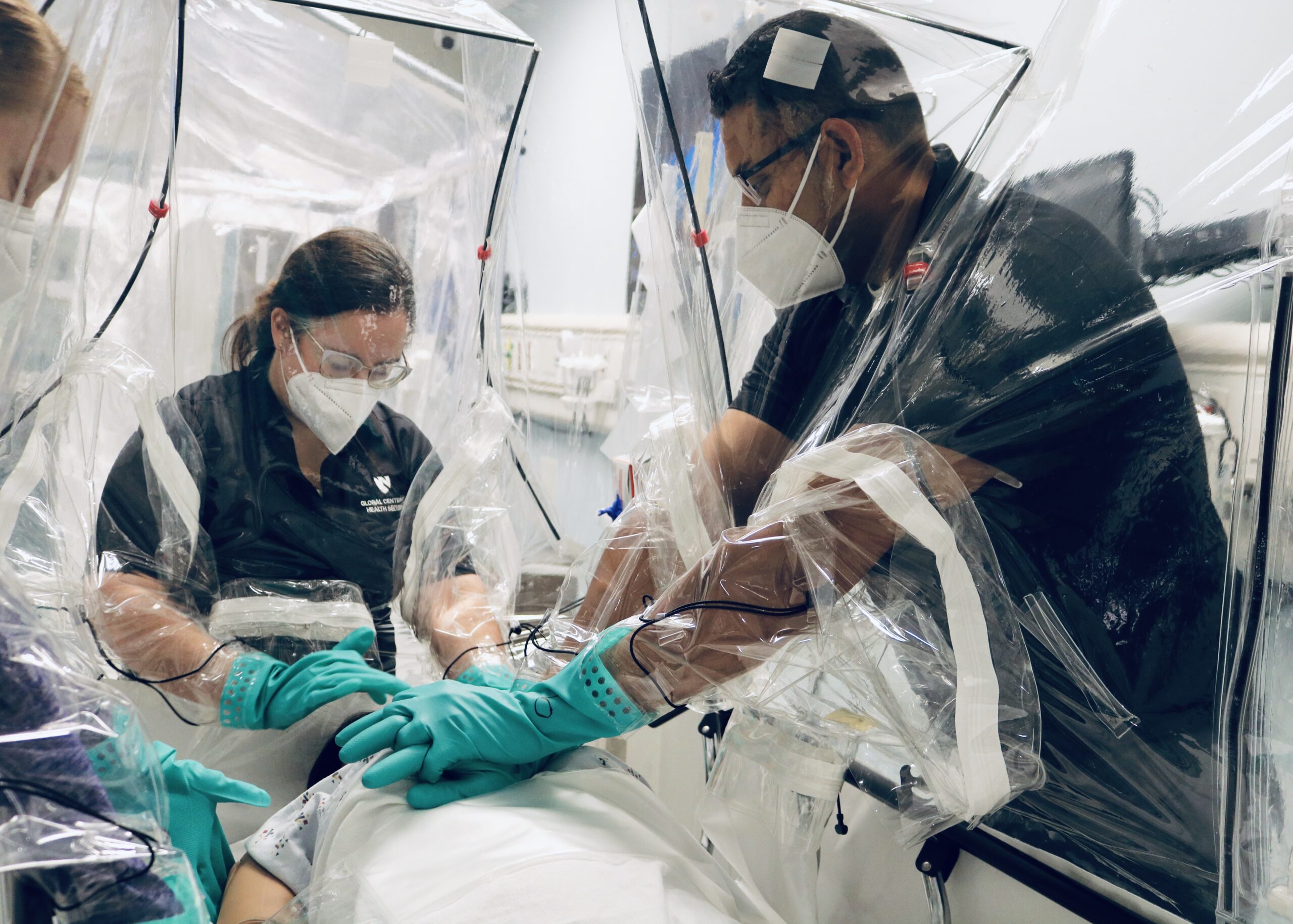
Shane Farritor is a mechanical engineering professor at the University of Nebraska-Lincoln and also the co-founder of two university spin-off companies. Photo by Kate Ellingson.
Shane Farritor had no plans of becoming an entrepreneur, but things changed in 2006. “This started with an alumnus (Globe Wireless chairman and CEO Ken Jones) from the university who is on the dean’s advisory board,” said Farritor, a mechanical engineering professor at the University of Nebraska-Lincoln. “He’s been very successful doing startup companies and wanted to help the university with his expertise. He wanted to help engineers and faculty start companies.”
Farritor was asked to present his surgical robot research to the dean’s advisory committee and then asked to come back again. “I had no idea what was going on, but then he came up to me after the meeting and asked if I’d ever thought about starting a company around these surgery robots,” Farritor recalled. “I said no. He asked if I was open to the idea, and I told him ‘I guess.’ ”
Just like that, Virtual Incision Corporation was started.
MRail started virtually the same way. “We got a pretty experienced entrepreneur again through this alumni connection who has some experience in the transportation sector that’s helped me with this process,” Farritor said, “and we had a license agreement in late 2009 and we raised capital a little less than a year later.”
Since then, Farritor has been learning more about business every day. “We’ll see how it goes — it’s early,” he said. “Both of these companies could be huge successes, and they both could be total disasters. They’re both high risk, high reward.”
Different strokes for different startups
MRail and Virtual Incision Corporation are both Lincoln-based companies, but beyond that they’re very different. “Surgery robots are small, delicate and clean, and trains have huge loads and they’re greasy,” Farritor said. “It just couldn’t be more different, and I like that.”
Virtual Incision Corporation makes tiny robots that are inserted inside the body and used during surgeries. It was co-founded by Farritor’s partner and University of Nebraska Medical Center surgeon Dr. Dmitry Oleynikov. The company secured $2 million in financing in the fall of 2010 (to read more about the deal and specifics of Virtual Incision read our previous article, “Virtual Incision Corporation completes $2M Series A financing“).

A few of Shane Farritor’s surgical robots. Photo courtesy of Farritor.
The company is currently in the pre-revenue stage, working on prototype development and building robots. “It’s a risky venture because it’s a long road before you find out whether people will buy what you’re selling,” Farritor said. “At the same time, it could be a high payoff deal. The market is very large, and the potential is very big.”
Farritor’s other company, MRail, makes a train car with sensors, lasers and cameras mounted on it to measure the stiffness of the track with the goal of improving maintenance and safety. MRail obtained $500,000 in seed funding from the Nebraska Angels, also in the fall of 2010 (to read more about the Nebraska Angels partnership and MRail, see our previous article, “Nebraska Angels provide $500k seed funding to MRail“).
MRail is currently talking to a couple of service providers and trying to put a partnership in place. “Once a partnership is in place, they’ll then build the device, and then hopefully in a year they’ll have the device and be well into sales,” Farritor said. “Eventually, we hope to build revenues and sell the company.”
Finding funding
Farritor gave a rundown of how the funding process worked and what it taught him. “Both companies were initially funded by the Nebraska Angels, so we got really good local support and good support from the university of course,” Farritor said. “It was hard (to raise the money). The Nebraska Angels were very supportive, but at the same time, I’m a faculty member and didn’t know much about this process.”
After Virtual Incision received an initial investment from Nebraska Angels and some others, they then needed to go out and try to raise a larger amount of venture capital. “That was really an amazing, horrible, and wonderful process,” Farritor said. “We pitched to about 63 venture capital groups, and they are really hard on you and they are very quick to tell you what’s wrong and what your problems are and why your idea is not fundable. It was a long learning process. So I got all my bruises and my bloody injuries through that process and hopefully learned something and got a little better at pitching, and we finally found some groups that were eager to be involved.”
During that time the university got grants from the Army and NASA to make the robots, so the prototypes got really good, which helped their pitch, Farritor said.

Farritor looks at some video of a surgical robot in action. Photo by Kate Ellingson.
Unforeseen benefits
Farritor said the process of commercializing his research has led to some surprising benefits. “It really has changed my research dramatically, which was unexpected,” Farritor said. “All these crazy questions force you to think about what research you’re doing and make sure you’re doing the right kind of research and then you go write a proposal on this stuff, and of course it’s stronger because you address these issues.”
After becoming an entrepreneur, Farritor decided to start teaching a new class at the University. “I’ve decided that we don’t do as good of a job as we should in educating our students in these areas, and I’ve started a class now about innovation and entrepreneurship in engineering,” he said. “I want to move the university and college as much as I can. We can do more here. There are a lot of good ideas and a lot of good research here that can be commercialized.”



